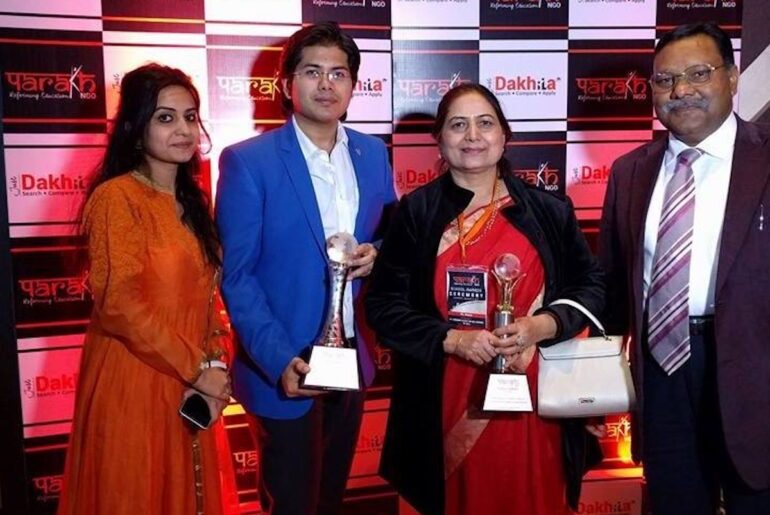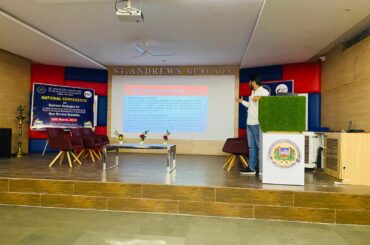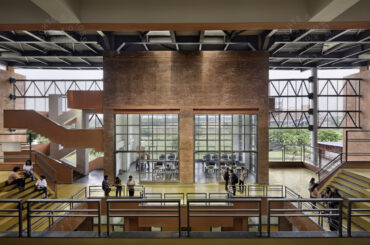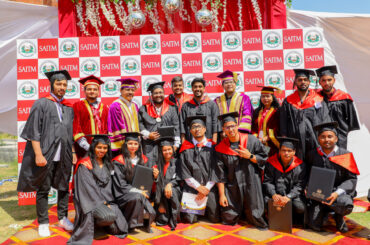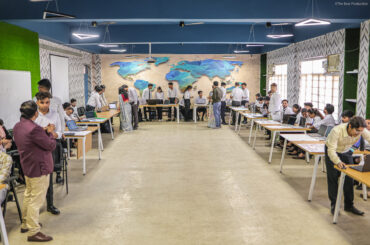B Tech Ka Full Form
B Tech Ka Full Form stands for Bachelor of Technology, a prestigious undergraduate degree in engineering and technology.
This program typically spans four years, divided into eight semesters, providing comprehensive education in various engineering disciplines such as Computer Science, Mechanical, Electrical, Civil, and Electronics Engineering.
The curriculum combines conceptual knowledge with practical skills through coursework, laboratory work, and projects.
B Tech graduates are well-equipped for diverse career opportunities in engineering domain, technology, research, and management. The degree is highly regarded for its rigorous training and ability to produce skilled professionals who are in high demand across multiple industries.
Some of the most opted courses in India and St. Andrews college or different Engineering college or Management colleges are as follows:-
Introduction to Bachelor of Technology
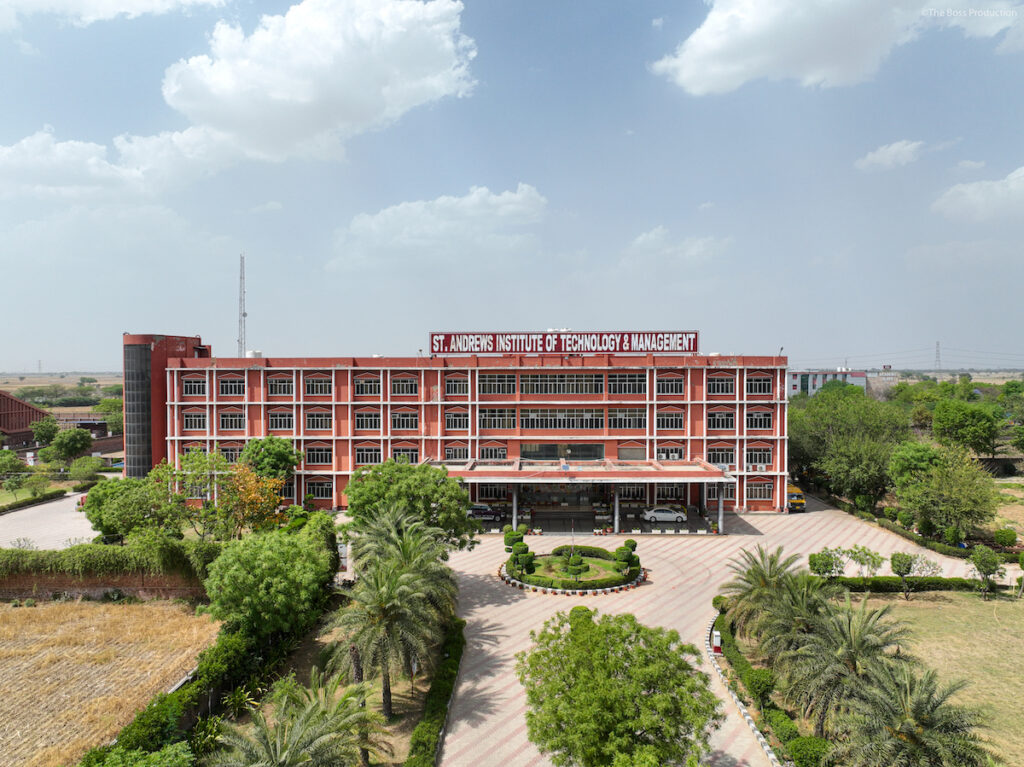
The Bachelor of Technology (BTech) is an undergraduate engineering degree awarded in the field of engineering and technology. Typically spanning four years, this program is designed to provide students with a strong foundation in technical and engineering principles, along with practical and industry-relevant skills.
Key Features
Duration and Structure
The BTech course usually lasts for four years, divided into eight semesters. Each semester includes a combination of theoretical lectures, practical lab sessions, and project work.
Curriculum
The curriculum is comprehensive, covering core engineering subjects, electives, and specialized courses. It integrates mathematics, physics, and core engineering principles with hands-on training and internships.
Specializations
BTech offers a variety of specializations across different engineering scholars such as Computer Science, Mechanical Engineering, Electrical Engineering, Civil Engineering, Electronics and Communication, Information Technology, and many more. These BTech courses allow students to focus on areas of interest, enhancing job opportunities and preparing them for the demands of the engineering and technology sectors. Each specialization focuses on specific industry needs and technical skills.
Skill Development
Emphasis is placed on developing technical skills, analytical thinking, problem-solving abilities, and project management skills. Students engage in workshops, labs, and real-world projects to enhance their practical knowledge.
Industry Relevance
BTech courses often include internships, industrial visits, and collaboration with industry experts. This exposure equips students with the skills necessary to excel in the engineering and technology industries.
Career Opportunities
Graduates of BTech courses have diverse career options in various industries such as IT, manufacturing, construction, telecommunications, and more. They can pursue roles as software developers, engineers, project managers, consultants, and researchers.
Higher Studies and Research
After completing BTech, students can opt for higher studies like MTech (Master of Technology), MBA (Master of Business Administration), or engage in research and development roles.
Importance of Bachelor of Technology Degree

A Bachelor of Technology (BTech) degree holds significant importance for several reasons. It equips students with the necessary skills and knowledge to thrive in the rapidly evolving technology and engineering sectors.
Here are some key aspects highlighting the importance of a BTech degree:
Practical and Technical Skills
Hands-On Experience
BTech programs emphasize practical training through labs, workshops, and projects. This hands-on experience is crucial for understanding and applying theoretical concepts in real-world scenarios. The technical education provided in BTech programs ensures that students gain essential hands-on experience and skills in engineering or technology fields. The technical and practical training provided in BTech programs ensures that students gain essential hands-on experience and skills in engineering or technology fields.
Industry Relevance
The curriculum is designed to meet industry standards and requirements, ensuring that graduates are job-ready and equipped with the latest technological skills.
Career Opportunities
Diverse Job Roles
BTech students, as engineering graduates, have a wide range of career opportunities across various sectors, including information technology, manufacturing, construction, telecommunications, and more.
High Demand
Engineers and technologists are in high demand globally. A BTech degree opens doors to numerous job opportunities with competitive salaries and growth prospects.
Innovation and Development
Problem-Solving Skills
The engineering education provided in BTech programs fosters critical thinking and problem-solving skills, enabling graduates to innovate and develop new technologies.
Contribution to Society
Engineers play a vital role in societal development by creating solutions to complex problems, improving infrastructure, and enhancing the quality of life.
Global Opportunities
International Recognition
BTech degrees from reputed engineering colleges are recognized globally, allowing graduates to pursue careers or further studies internationally.
Global Collaboration
The technical skills and knowledge gained through a BTech program facilitate collaboration with professionals worldwide, contributing to global technological advancements.
Further Education and Specialization
Advanced Studies
A BTech degree provides a strong foundation for pursuing higher education, such as a Master of Technology (MTech), Master of Science (MS), or even a PhD.
Specializations
Graduates can specialize in specific fields of interest, such as artificial intelligence, data science, cybersecurity, and more, to enhance their expertise and career prospects.
Economic Growth
Contribution to Economy
Engineers and technologists are crucial for economic growth and development. Their innovations and solutions drive industries forward, contributing to a nation’s economic prosperity.
Entrepreneurship
Many BTech students become entrepreneurs, starting their own tech companies or engineering firms, further boosting economic growth and creating job opportunities.
Adaptability and Lifelong Learning
Continuous Learning
The fast-paced nature of technology requires continuous learning and adaptation. BTech programs instill a culture of lifelong learning, preparing graduates to stay updated with technological advancements.
Versatility
The skills acquired during a BTech program are versatile and applicable across various industries, allowing graduates to switch fields or adapt to new roles easily.
Specializations in BTech
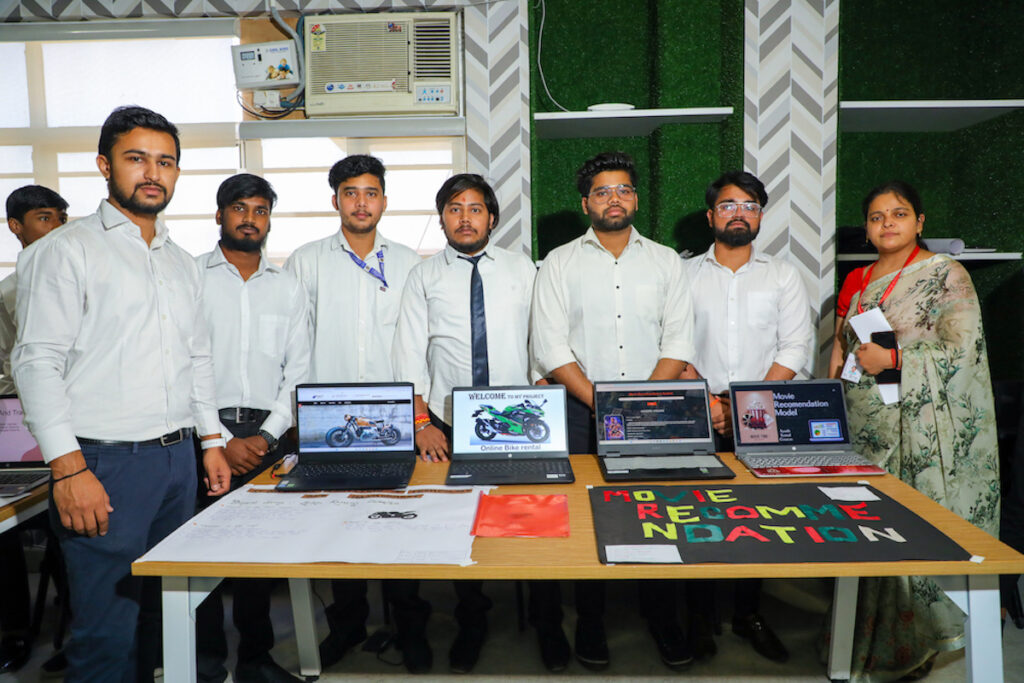
The Bachelor of Technology (BTech) program offers a wide range of specializations across various engineering branches to cater to the diverse interests and career aspirations of students. Some of the popular specializations include mechanical engineering, electrical engineering, civil engineering, aerospace engineering, and computer engineering. These specializations are designed to equip students with the necessary skills and knowledge to excel in their chosen fields.
Mechanical Engineering, Course Overview and Career Prospects
Mechanical engineering is a branch of engineering that deals with the design, construction, and use of machines.
It is one of the oldest and broadest branches of engineering.
Mechanical engineers work in a wide range of industries, including automotive, aerospace, and manufacturing.
They design and develop new products, systems, and processes, and also test and maintain existing ones.
Electrical Engineering, Scope and Job Profiles
Electrical engineering is a field of engineering focused on the exploration and practical use of electricity, electronics, and electromagnetism.
It is a rapidly growing field with a wide range of job opportunities.
Electrical engineers work in industries such as power generation and distribution, telecommunications, and electronics.
They design and develop new electrical systems, devices, and products, and also test and maintain existing ones.
Civil Engineering, Career Opportunities and Salary Ranges
Civil engineering is a discipline of engineering that focuses on designing, constructing, and maintaining physical infrastructure.
It is a highly respected and in-demand field with a wide range of job opportunities.
Civil engineers work in industries such as construction, transportation, and urban planning.
They design and develop new infrastructure projects, such as roads, bridges, and buildings, and also test and maintain existing ones.
Btech Petroleum engineering
It is an undergraduate program focused on the exploration, extraction, and production of oil and natural gas.
The curriculum includes subjects like geology, thermodynamics, drilling engineering, reservoir engineering, and petroleum production operations. Students gain Conceptual Knowledge and practical skills essential for the petroleum industry.
The program also covers environmental concerns and sustainable practices in the field.
Graduates can pursue careers as petroleum engineers, drilling engineers, reservoir engineers, and production engineers in oil and gas companies, both in India and internationally.
The demand for petroleum engineers remains high due to the ongoing need for energy resources.
BTech in Environmental Engineering
BTech in Environmental Engineering is an undergraduate program that focuses on the principles of engineering, soil science, biology, and chemistry to develop solutions to environmental problems.
The curriculum includes subjects like environmental chemistry, water supply engineering, waste management, air pollution control, and environmental impact assessment.
Graduates are equipped to work in roles related to pollution control, environmental sustainability, and natural resource management.
Career opportunities include positions in government agencies, environmental consulting firms, and industries focused on sustainable practices.
Marine engineering
BTech in Marine Engineering is an undergraduate program that trains students in the design, construction, and maintenance of ships and other marine vessels.
The curriculum covers subjects like naval architecture, marine propulsion, ship dynamics, and marine power plants.
Graduates are prepared for careers in the shipping industry, naval defense, and offshore engineering. They often work as marine engineers, naval architects, or technical consultants in maritime industries.
BTech in Aerospace Engineering
BTech in Aerospace Engineering focuses on the design, development, and maintenance of aircraft and spacecraft. The program includes studies in aerodynamics, propulsion systems, avionics, and materials science. Students learn about the principles of flight, space exploration, and aircraft systems. Graduates are prepared for careers in aviation, space agencies, defense, and aerospace manufacturing, working as aerospace engineers, systems analysts, or project managers.
BTech in Chemical Engineering
BTech in Chemical Engineering focuses on applying chemical and physical sciences to develop processes for producing chemicals, pharmaceuticals, and materials. It involves studying chemical reactions, process design, and the operation of equipment used in industrial production. The program prepares students for roles in manufacturing, research, and development, emphasizing safety, environmental impact, and efficiency in chemical processes.
B Tech Admission Process
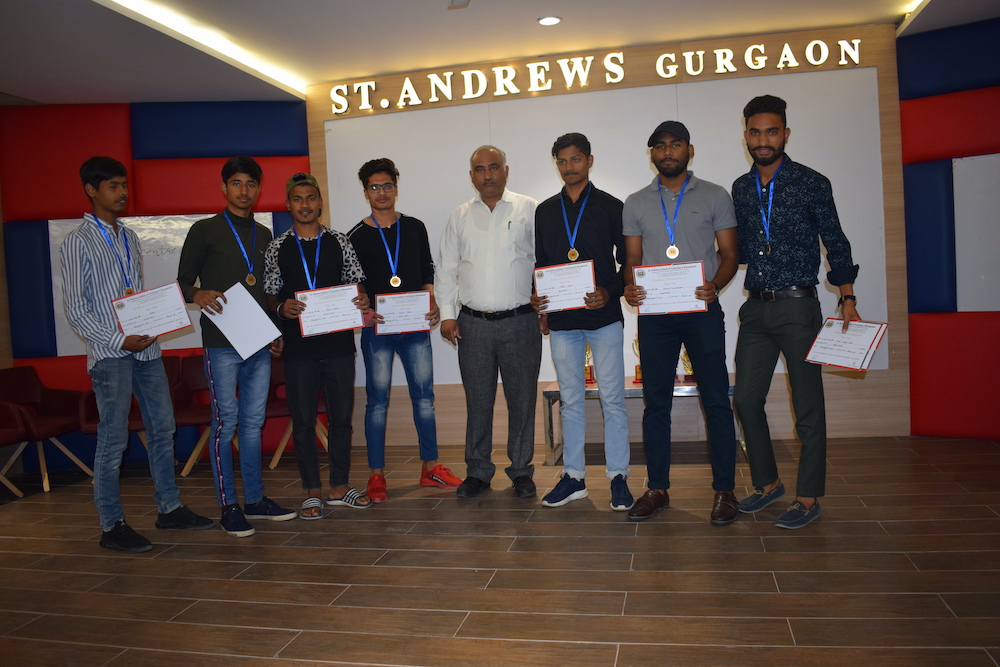
The admission process for a Bachelor of Technology (BTech) program in India typically involves several steps, from meeting eligibility criteria to appearing for entrance examinations and participating in counseling sessions.
Here’s a detailed overview of the BTech admission process:
Eligibility Criteria
Educational Qualification
Candidates must have completed their 10+2 or equivalent examination from a recognized board.
They should have studied Physics, Chemistry, and Mathematics (PCM) as core subjects.
Minimum Marks
Candidates usually need to secure a minimum aggregate percentage in their 10+2 examinations, typically ranging from 50% to 75% depending on the college and entrance exam requirements.
Entrance Exams
National Level Exams
Joint Entrance Examination (JEE) Main
Joint Entrance Examination (JEE) Main isConducted by the National Testing Agency (NTA), it is the most widely accepted entrance exam for BTech admissions in India. The Joint Entrance Examination (JEE) Main is one of the most widely accepted engineering entrance examinations for admissions in India.
JEE Advanced
For admission to the Indian Institutes of Technology (IITs), candidates must qualify JEE Main and then appear for JEE Advanced.
State Level Exams
Various states conduct their own entrance exams, such as MHT-CET (Maharashtra), WBJEE (West Bengal), KCET (Karnataka), and others.
University Level Exams
Private and deemed universities may conduct their own entrance exams, such as BITSAT (BITS Pilani), VITEEE (VIT), and others.
Application Process
Online Registration
Candidates need to register online on the official websites of the respective entrance exams or universities.
Fill in personal details, educational qualifications, and upload required documents.
Application Fee
Pay the application fee through online payment methods such as credit/debit cards, net banking, or UPI.
Form Submission
After filling in all details and paying the fee, submit the application form online.
Entrance Exam Preparation
Syllabus and Pattern
Understand the syllabus and exam pattern for the respective top btech entrance exams.
Focus on PCM subjects and practice previous years’ question papers.
Coaching and Self-Study
Many students opt for coaching classes, while others prefer self-study with the help of study materials and online resources.
Admit Card and Exam
Download Admit Card:
Candidates can download their admit cards from the official exam websites.
The admit card contains details such as exam date, time, and center.
Appear for the Exam
On the exam day, candidates must carry their admit card and a valid ID proof to the exam center.
Results and Rank List
Result Declaration
The results are usually declared online on the official exam websites.
Candidates can check their scores and ranks using their roll number and date of birth.
Rank List
Based on the scores, a rank list is prepared, and candidates are assigned ranks.
Counseling Process
Online Registration
Register for the counseling process on the respective exam or university website.
Choice Filling
Fill in the choice of colleges and courses based on preference and rank.
Seat Allotment
Seats are allotted based on the candidate’s rank, preferences, and availability of seats.
Document Verification
Candidates need to attend the document verification process at the allotted center with original documents.
Admission Fee Payment
After document verification, candidates need to pay the admission fee to confirm their seat.
Final Admission
College Reporting
Candidates must report to the allotted college within the specified time frame.
Orientation and Commencement
Attend the orientation program and start attending classes as per the academic calendar.
B Tech Syllabus and Curriculum
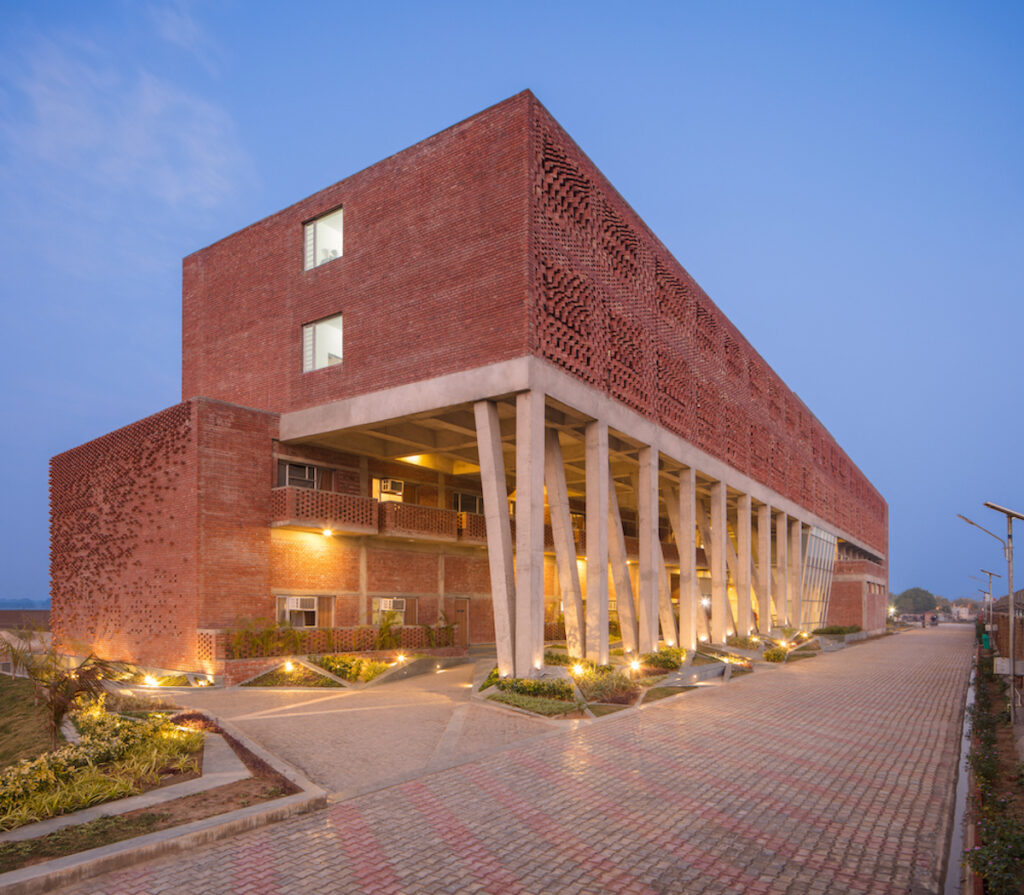
The Bachelor of Technology (B Tech) syllabus and engineering curriculum are designed to provide a comprehensive understanding of engineering principles, technical skills, and practical knowledge across various Scholars. The curriculum typically spans eight semesters over four years and includes core subjects, electives, labs, and project work.
Here’s a detailed overview:
First Year (Semesters 1 and 2)
Core Subjects
Mathematics I & II
Calculus, linear algebra, differential equations, probability, and statistics.
Physics
Mechanics, waves, optics, thermodynamics, and modern physics.
Chemistry
Basic concepts in chemistry, organic and inorganic chemistry, and physical chemistry.
Basic Electrical Engineering
Electrical circuits, signals, and systems, basic electronic devices.
Engineering Graphics
Technical drawing, CAD tools, isometric and orthographic projections.
Programming
Introduction to programming languages (C, C++), data structures, algorithms.
English Communication
Developing communication skills, technical writing, and presentations.
Labs
Physics Lab
Chemistry Lab
Electrical Engineering Lab
Programming Lab
Engineering Graphics Lab
Second Year (Semesters 3 and 4)
Core Subjects
Mathematics III
Advanced calculus, complex variables, numerical methods.
Core Discipline Subjects
Varying based on specialization. For instance:
Computer Science & Engineering (CSE)
Data structures, algorithms, computer organization, operating systems.
Mechanical Engineering
Thermodynamics, fluid mechanics, material science, kinematics, engineering mechanics.
Electrical Engineering
Electromagnetic fields, control systems, digital electronics.
Civil Engineering
Structural analysis, construction materials, geotechnical engineering.
Labs
Discipline-specific labs (e.g., Data Structures Lab, Thermodynamics Lab)
Third Year (Semesters 5 and 6)
Core and Elective Subjects
Core Subjects
Continue with core discipline subjects.
Electives
Specialization electives such as artificial intelligence, cybersecurity, IoT, robotics, VLSI design, renewable energy systems.
Engineering Economics
Introduction to engineering economics, cost analysis, and project management.
Management and Humanities
Subjects like industrial management, environmental science, ethics, and values in engineering.
Labs
Advanced discipline-specific labs
Elective subject labs
Fourth Year (Semesters 7 and 8)
Advanced Electives and Projects
Advanced Electives
In-depth courses in chosen specialization areas.
Project Work
Major project spanning two semesters, involving research, design, and implementation.
Seminars
Presentations on contemporary engineering topics, research findings.
Labs
Project labs
Specialized elective labs
Top B Tech NIRF Ranked BTech Colleges in India
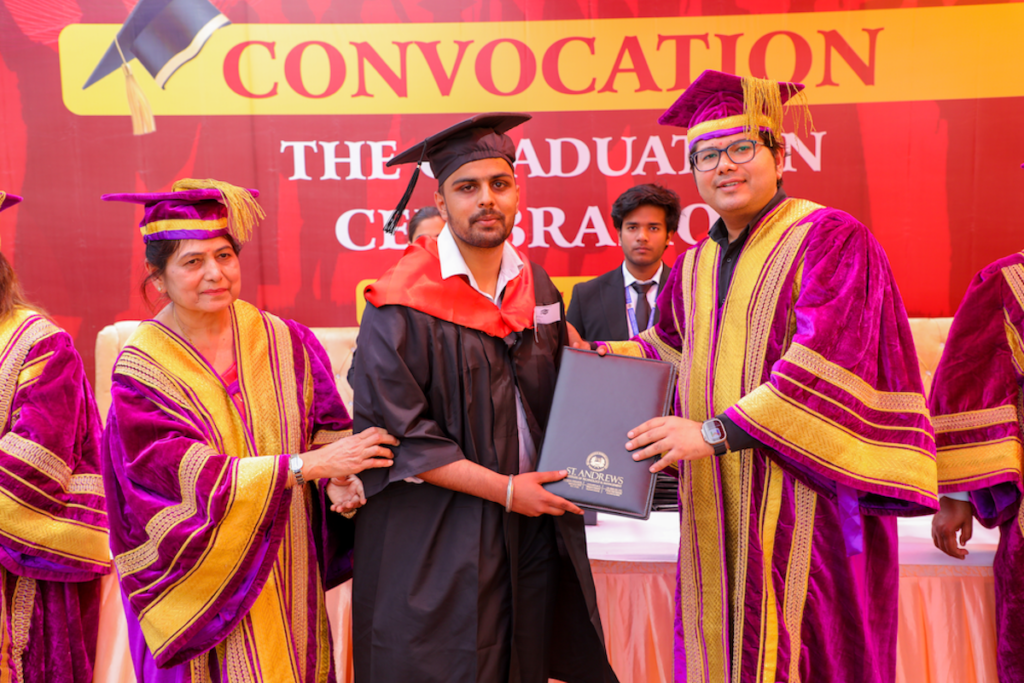
The National Institutional Ranking Framework (NIRF) provides a comprehensive ranking of colleges and universities in India based on various parameters, including teaching, learning, and resources, research and professional practices, graduation outcomes, outreach and inclusivity, and perception. These engineering institutions maintain rigorous academic standards, ensuring that students receive a high-quality education.
Here are some of the top NIRF-ranked Top BTech colleges in India:
Indian Institute of Technology Madras (IIT Madras)
NIRF Rank 1
Location
Chennai, Tamil Nadu
Highlights
Known for its strong emphasis on research and innovation, excellent faculty, state-of-the-art infrastructure, and vibrant campus life.
Indian Institute of Technology Delhi (IIT Delhi)
NIRF Rank 2
Location
New Delhi, Delhi
Highlights
Renowned for its cutting-edge research, strong industry collaborations, diverse student community, and excellent placement record.
Indian Institute of Technology Bombay (IIT Bombay)
NIRF Rank 3
Location
Mumbai, Maharashtra
Highlights
Offers a dynamic campus environment, robust research facilities, international collaborations, and a high employability rate for graduates.
Indian Institute of Technology Kanpur (IIT Kanpur)
NIRF Rank 4
Location
Kanpur, Uttar Pradesh
Highlights
Known for its rigorous academic programs, extensive research output, modern laboratories, and strong alumni network.
Indian Institute of Technology Kharagpur (IIT Kharagpur)
NIRF Rank 5
Location
Kharagpur, West Bengal
Highlights
Offers a comprehensive range of engineering Scholars, significant research contributions, and a vast and scenic campus.
Indian Institute of Technology Roorkee (IIT Roorkee)
NIRF Rank 6
Location
Roorkee, Uttarakhand
Highlights
One of the oldest technical institutions in Asia, known for its strong academic programs, research excellence, and beautiful campus.
Indian Institute of Technology Guwahati (IIT Guwahati)
NIRF Rank 7
Location
Guwahati, Assam
Highlights
Known for its serene campus, vibrant research culture, and strong emphasis on innovation and entrepreneurship.
Indian Institute of Technology Hyderabad (IIT Hyderabad)
NIRF Rank 8
Location
Hyderabad, Telangana
Highlights
Offers modern infrastructure, interdisciplinary research opportunities, and a strong focus on innovation and startups.
Indian Institute of Technology Indore (IIT Indore)
NIRF Rank 10
Location
Indore, Madhya Pradesh
Highlights
Known for its rapidly growing research output, strong academic programs, and modern facilities.
Key Features of Top NIRF-Ranked B Tech Colleges
High Academic Standards
These colleges maintain rigorous academic standards, ensuring that students receive a high-quality education.
Research Opportunities
Students have access to cutting-edge research facilities and are encouraged to participate in innovative research projects.
Industry Connections
Strong collaborations with industry partners provide students with opportunities for internships, projects, and placements.
Experienced Faculty
These institutions boast highly qualified and experienced faculty members who are leaders in their fields.
Modern Infrastructure
State-of-the-art laboratories, libraries, and campus facilities support the overall learning experience.
Global Exposure
Opportunities for international collaborations, student exchange programs, and global research projects.
The top NIRF-ranked BTech colleges in India, including various IITs and NITs, offer excellent academic programs, research opportunities, and career prospects. These institutions are recognized for their contributions to engineering education and research, making them highly sought-after destinations for aspiring engineers.
Best BTech Government Colleges in India
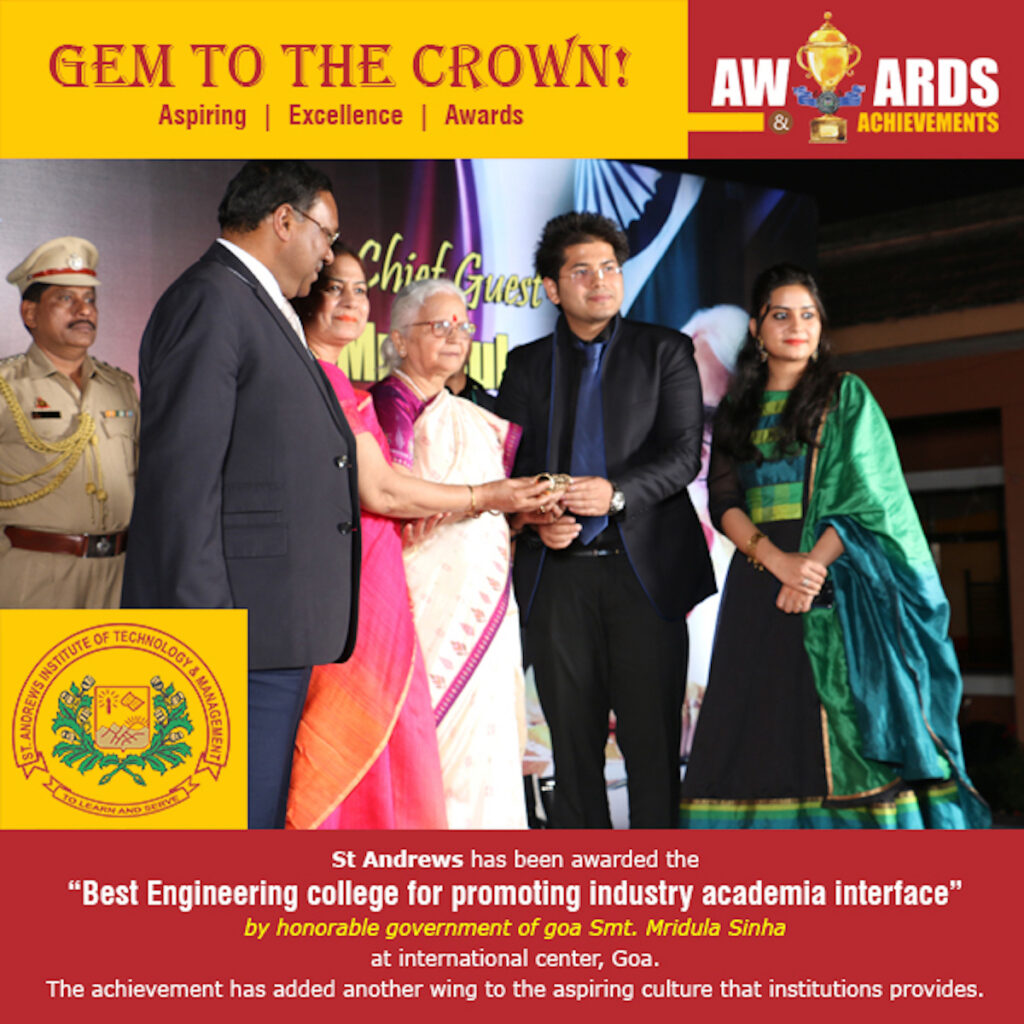
India is home to numerous government engineering universities that offer BTech programs, known for their high academic standards, excellent infrastructure, and robust research facilities.
Here’s an overview of some of the best government BTech colleges in India:
St. Andrew’s Institute of Technology and Management
Location
Gurgaon
Highlights
Offers a comprehensive range of engineering scholars, significant research output, and a vast and scenic campus.
Indian Institutes of Technology (IITs)
The IITs are the premier engineering institutions in India, known for their rigorous academics and cutting-edge research. Here are some of the top IITs:
IIT Madras
Location
Chennai, Tamil Nadu
Highlights
Known for its strong emphasis on research and innovation, state-of-the-art facilities, and excellent placement records.
IIT Delhi
Location
New Delhi, Delhi
Highlights
Offers a dynamic campus environment, strong industry collaborations, and a high employability rate for graduates.
IIT Bombay
Location
Mumbai, Maharashtra
Highlights
Renowned for its vibrant campus life, excellent faculty, and significant research contributions.
IIT Kanpur
Location
Kanpur, Uttar Pradesh
Highlights
Known for its rigorous academic programs, modern laboratories, and strong alumni network.
Location
Kharagpur, West Bengal
Highlights
Offers a comprehensive range of engineering disciplines, significant research output, and a vast and scenic campus.
National Institutes of Technology (NITs)
The NITs are among the top engineering colleges in India, offering quality education and excellent placement opportunities. Some of the top NITs include:
NIT Tiruchirappalli (NIT Trichy)
Location
Tiruchirappalli, Tamil Nadu
Highlights
Known for its academic rigor, excellent placement record, and strong industry links.
Location
Mangalore, Karnataka
Highlights
Offers modern infrastructure, strong research focus, and a vibrant campus life.
NIT Warangal
Location
Warangal, Telangana
Highlights
Renowned for its high academic standards, extensive research facilities, and active student community.
NIT Rourkela
Location
Rourkela, Odisha
Highlights
Known for its strong placement record, diverse academic programs, and excellent faculty.
NIT Calicut
Location
Calicut, Kerala
Highlights
Offers a dynamic campus environment, robust research opportunities, and strong industry collaborations.
Indian Institute of Information Technology (IIITs)
The IIITs focus on information technology and related fields, offering specialized programs and excellent research facilities. Some of the top IIITs include:
IIIT Hyderabad
Location
Hyderabad, Telangana
Highlights
Known for its strong focus on research and innovation, excellent faculty, and high placement rates.
IIIT Bangalore
Location
Bangalore, Karnataka
Highlights
Offers a vibrant campus environment, cutting-edge research facilities, and strong industry ties.
IIIT Delhi
Location
New Delhi, Delhi
Highlights
Renowned for its rigorous academic programs, modern infrastructure, and robust placement opportunities.
Other Prominent Government Engineering Colleges

College of Engineering, Pune (COEP)
Location
Pune, Maharashtra
Highlights
Offers a strong academic curriculum, vibrant campus life, and robust industry connections.
Delhi Technological University (DTU)
Location
New Delhi, Delhi
Highlights
Renowned for its excellent academic programs, modern infrastructure, and high placement rates.
Jadavpur University
Location
Kolkata, West Bengal
Highlights
Known for its rigorous academics, significant research contributions, and strong alumni network.
Best BTech Private Colleges in India
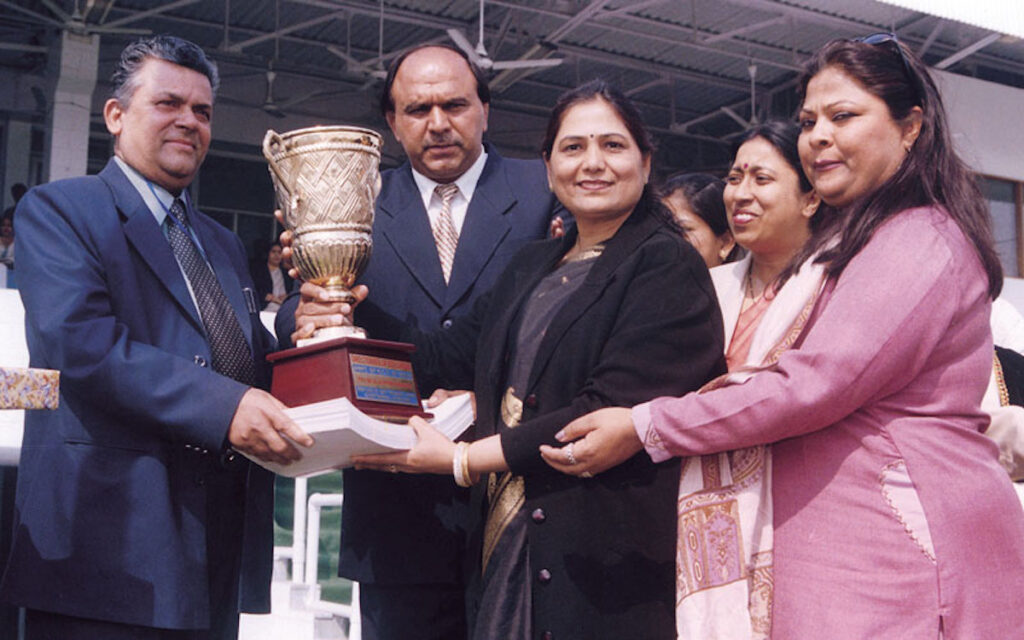
India boasts a variety of esteemed private engineering colleges that offer Bachelor of Technology (BTech) programs. These institutions are known for their excellent academic curriculum, state-of-the-art infrastructure, and impressive placement records.
Here’s a detailed look at some of the best private universities in India:
Vellore Institute of Technology (VIT)
Location
Vellore, Tamil Nadu (and campuses in Chennai, Bhopal, and Amaravati)
Highlights
High academic standards with a strong emphasis on research.
Modern infrastructure and extensive industry collaborations.
Excellent placement opportunities with top recruiters.
Diverse student body and vibrant campus culture.
St. Andrews Institute of Technology and Management (SAITM)
Location
Gurgaon, Haryana
Highlights
Offers quality education with a focus on practical skills and industry readiness.
Modern infrastructure and extensive industry collaborations.
Good placement opportunities with a range of recruiters.
Emphasis on holistic student development through various extracurricular activities.
Amrita Vishwa Vidyapeetham (Amrita University)
Location
Coimbatore, Tamil Nadu (and campuses in Amritapuri, Bengaluru, Kochi, and Mysuru)
Highlights
High academic standards with a focus on research and innovation.
Strong emphasis on ethical and value-based education.
Excellent infrastructure and placement opportunities.
Active collaboration with global universities and research institutions.
Thapar Institute of Engineering and Technology
Location
Patiala, Punjab
Highlights
Known for its high academic standards and rigorous curriculum.
Strong focus on research, innovation, and entrepreneurship.
Excellent placement records and industry partnerships.
Modern infrastructure and vibrant campus life.
Shiv Nadar University
Location
Greater Noida, Uttar Pradesh
Highlights
Offers a multidisciplinary approach with strong engineering programs.
State-of-the-art infrastructure and research facilities.
Strong industry connections and impressive placement records.
Emphasis on holistic education and student development.
Kalinga Institute of Industrial Technology (KIIT)
Location
Bhubaneswar, Odisha
Highlights
Offers a wide range of engineering specializations with modern facilities.
Strong focus on research, innovation, and entrepreneurship.
Excellent placement records and industry partnerships.
Vibrant campus life with diverse student activities.
Sathyabama Institute of Science and Technology
Location
Chennai, Tamil Nadu
Highlights
Known for its comprehensive engineering programs and research initiatives.
Modern laboratories, extensive library facilities, and a strong alumni network.
Excellent placement opportunities with top recruiters.
Active student community and vibrant campus environment.
Career Scope and Job Profiles of BTech Graduates
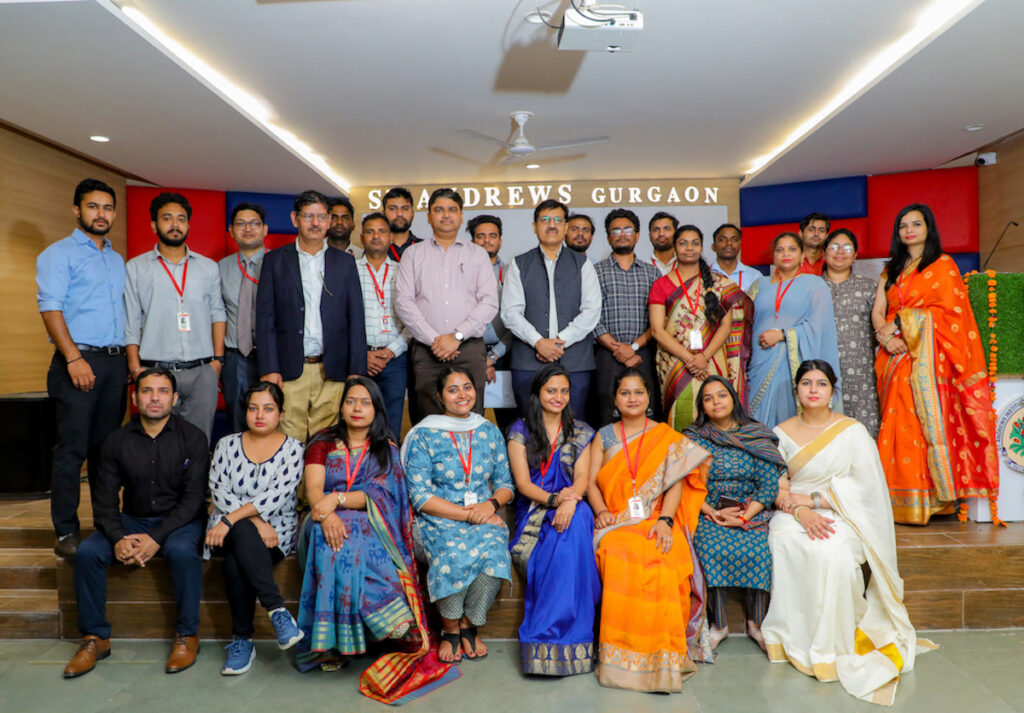
A Bachelor of Technology (BTech) degree opens up a wide array of career opportunities across various industries. A Bachelor of Technology (BTech) degree opens up a wide array of engineering careers across various industries. The skills and knowledge acquired during the BTech program prepare graduates for diverse roles in engineering, technology, management, and research.
Here’s an in-depth look at the career scope and job profiles for BTech students:
Software Engineer/Developer
Role
Design, develop, test, and maintain software applications.
Skills
Programming languages (Java, C++, Python), software development methodologies, problem-solving.
Industries
IT companies, tech startups, finance, healthcare, e-commerce.
Data Analyst/Scientist
Role
Analyze large datasets to derive insights, develop predictive models, and support data-driven decision-making.
Skills
Statistical analysis, data visualization, machine learning, proficiency in tools like R, Python, SQL.
Industries
Finance, healthcare, retail, marketing, research organizations.
Network Engineer
Role
Design, implement, and manage computer networks, ensure network security, troubleshoot network issues.
Skills
Network protocols, routing, switching, network security, knowledge of tools like Cisco, Juniper.
Industries
IT services, telecommunications, manufacturing, government agencies.
Mechanical Engineer
Role
Design, analyze, manufacture, and maintain mechanical systems.
Skills
CAD software, thermodynamics, fluid mechanics, material science.
Industries
Automotive, aerospace, manufacturing, energy, robotics.
Electrical/Electronics Engineer
Role
Design and develop electrical systems, circuits, and devices.
Skills
Circuit design, microcontrollers, embedded systems, power electronics.
Industries
Consumer electronics, automotive, telecommunications, power generation.
Civil Engineer
Role
Plan, design, and oversee construction projects such as buildings, roads, bridges, and infrastructure.
Skills
Structural analysis, construction management, geotechnical engineering, CAD software.
Industries
Construction, urban planning, real estate, government agencies.
Chemical Engineer
Role
Develop processes for the production of chemicals, design equipment for chemical manufacturing.
Skills
Process design, chemical reaction engineering, safety protocols, knowledge of chemical processes.
Industries
Pharmaceuticals, petrochemicals, food processing, materials science.
AI/ML Engineer
Role
Develop and deploy artificial intelligence and machine learning models.
Skills
Machine learning algorithms, deep learning frameworks, data preprocessing, model evaluation.
Industries
Technology, healthcare, finance, autonomous vehicles, research.
Project Manager
Role
Plan, execute, and close projects, manage resources, timelines, and budgets.
Skills
Project management methodologies (Agile, Scrum), leadership, communication, risk management.
Industries
IT, construction, manufacturing, consulting, finance.
Salary and Career Prospects of B Tech Graduates
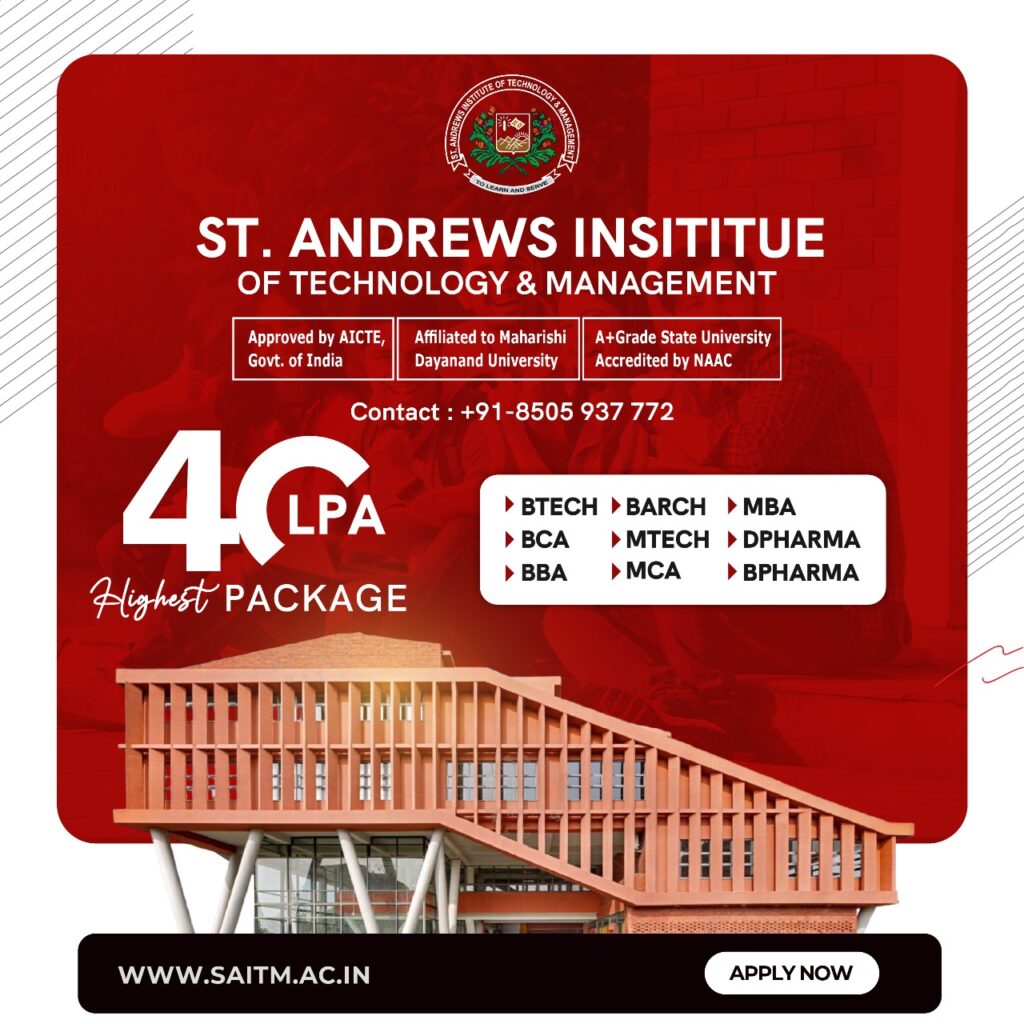
A Bachelor of Technology (BTech) degree offers graduates numerous career opportunities and attractive salary packages across various industries. A tech degree not only equips students with essential technical skills but also enhances their marketability in the workforce, significantly boosting job prospects and earning potential. The career prospects and salary potential largely depend on the specialization, industry, location, and individual skills. Entry-level engineering jobs typically offer an average salary ranging from ₹3-6 lakh per annum.
Here’s a detailed explanation of the salary and career prospects for BTech Scholars:
Salary Overview
Entry-Level Positions
Average Salary
₹3-6 lakh per annum
Roles
Junior Engineer, Software Developer, Assistant Engineer, Technical Support Engineer
Specializations
Vary by industry but generally include IT, Mechanical, Civil, Electrical, and Electronics Engineering
Mid-Level Positions
Average Salary
₹6-12 lakh per annum
Roles
Senior Software Engineer, Project Engineer, Systems Analyst, Network Engineer, Quality Assurance Engineer
Specializations
Include more experience-driven roles in IT, Manufacturing, Construction, Telecommunications, etc.
Senior-Level Positions
Average Salary
₹12-25 lakh per annum
Roles
Project Manager, Senior Architect, Lead Engineer, Product Manager, Department Head
Specializations
High-level management and specialized technical roles
Specialized Roles
Average Salary
₹15-30 lakh per annum
Roles
AI/ML Engineer, Data Scientist, Cybersecurity Expert, IoT Specialist, Blockchain Developer
Specializations
Involve advanced technical expertise and are highly valued in industries like technology, finance, and healthcare
Factors Influencing Salaries

Industry
IT and Software, Finance, Healthcare, and Technology tend to offer higher salaries compared to other sectors.
Location
Metropolitan cities like Bangalore, Mumbai, Hyderabad, and Delhi usually offer higher salaries due to the concentration of tech companies and higher living costs.
Skills and Experience
Proficiency in emerging technologies and years of experience significantly enhance salary potential.
Educational Background
Graduates from top-tier institutes like IITs, NITs, and other reputed engineering colleges often have better salary packages.
Career Prospects for B tech
Software Development and IT
Roles
Software Developer, Web Developer, Mobile App Developer, Systems Analyst, IT Consultant
Prospects
High demand in both startups and established companies; opportunities for rapid career growth
Data Science and Analytics
Roles
Data Scientist, Data Analyst, Business Analyst, Data Engineer
Prospects
Increasing reliance on data-driven decision-making; high demand across various sectors including finance, healthcare, and e-commerce
Core Engineering Fields
Roles
Mechanical Engineer, Infrastructure Engineer, Electrical Engineer, Electronics Engineer
Prospects
Stable demand in manufacturing, construction, automotive, and energy sectors; opportunities in public sector enterprises
Emerging Technologies
Roles
AI/ML Engineer, Cybersecurity Specialist, IoT Developer, Blockchain Developer
Prospects
Rapid growth and high demand in tech-driven industries; significant scope for innovation and research
Management and Consultancy
Roles
Project Manager, Product Manager, Technical Consultant, Business Development Manager
Prospects
Opportunities for leadership roles; attractive salary packages and benefits; potential for career advancement in diverse industries
Research and Development
Roles
R&D Engineer, Research Scientist, Innovation Manager
Prospects
Opportunities in high-tech industries, academic institutions, and government research organizations; focus on innovation and new technology development
Higher Studies and Academia
Options
MTech, MS, MBA, PhD
Prospects
Specialization and research opportunities; roles in teaching and academic administration
Difference Between BE and BTech
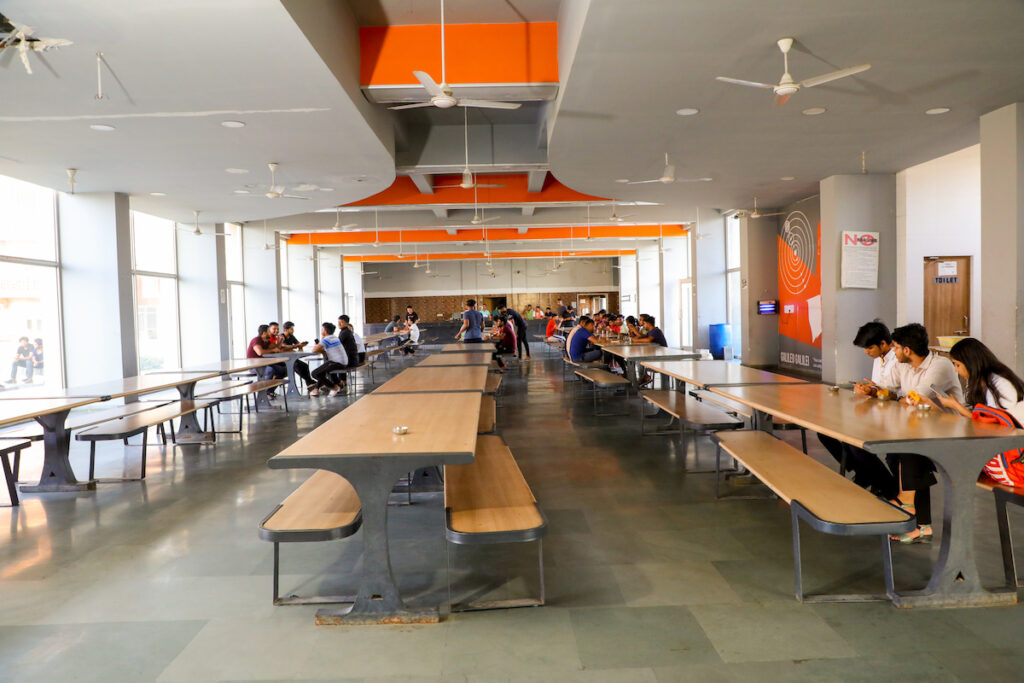
The Bachelor of Engineering (BE) and the Bachelor of Technology (BTech) are both undergraduate degrees in engineering, but there are subtle differences between the two in terms of focus, curriculum, and educational approach.
Focus and Orientation
BE (Bachelor of Engineering)
BE programs tend to have a more theoretical focus, emphasizing the conceptual and foundational aspects of engineering. Both BE and BTech are types of engineering degree programs, but they differ in focus and orientation.
These programs often delve deeper into the principles and theories underlying engineering practices.
They aim to produce graduates who are well-versed in engineering principles and are capable of innovating and contributing to theoretical advancements in the field.
BTech (Bachelor of Technology)
BTech courses are more application-oriented, focusing on practical and hands-on training.
The curriculum is designed to equip students with skills and knowledge directly applicable to industry needs.
BTech graduates are often trained to handle real-world problems and are well-prepared for immediate employment in technical roles.
Curriculum and Coursework
BE
The BE curriculum typically includes a significant amount of theoretical coursework along with practical sessions.
It emphasizes research, development, and the conceptual understanding of engineering systems.
There may be a stronger focus on subjects like mathematics, physics, and the fundamental sciences.
BTech
The BTech curriculum places a greater emphasis on practical training, internships, and industry exposure.
Coursework includes numerous lab sessions, workshops, and project work aimed at developing technical skills.
The focus is on implementing engineering concepts in real-world applications, making graduates job-ready.
Teaching Methodology
BE
The teaching methodology in BE programs often includes lectures, seminars, and theoretical assignments.
There is a significant focus on understanding and researching engineering concepts and principles.
BTech
BTech programs employ a more hands-on teaching approach, with a greater emphasis on lab work, industrial training, and practical assignments.
The methodology is designed to simulate real-world engineering problems and solutions.
Industry and Research Orientation
BE
BE graduates may find themselves more inclined towards research and development roles, higher education, or academic careers.
The degree provides a solid foundation for pursuing advanced studies like MTech, MS, or PhD.
BTech
BTech graduates are often preferred for roles in industry and corporate sectors due to their practical training and job-ready skills.
The degree equips students with the necessary tools to enter the workforce immediately and handle technical roles efficiently.
Institutions Offering the Degrees
BE
BE degrees are typically offered by universities and institutions that emphasize research and theoretical education.
BTech
BTech degrees are often provided by technical universities and institutes that focus on technological advancements and industry collaborations.
FAQ’s
What is a BTech degree?
BTech stands for Bachelor of Technology. It is an undergraduate academic degree awarded after the completion of a four-year engineering program in the field of engineering and technology.
What are the eligibility criteria for BTech admission?
The typical eligibility criteria for BTech admission include completing 10+2 or equivalent with Physics, Chemistry, and Mathematics as core subjects. B Tech Ka Full Form is Bachelor of Technology. Candidates must also qualify for entrance exams such as JEE Main, JEE Advanced, or state-level engineering entrance exams.
How long is a BTech program?
A BTech program typically lasts four years, divided into eight semesters. B Tech Ka Full Form is Bachelor of Technology. Some institutes may offer accelerated or extended programs depending on the course structure and academic calendar.
What are the popular specializations in BTech?
Popular BTech specializations include Computer Science and Engineering, Mechanical Engineering, Civil Engineering, Electrical Engineering, Electronics and Communication Engineering, Information Technology, and Chemical Engineering. B Tech Ka Full Form is Bachelor of Technology.
Which entrance exams are required for BTech admission?
Common entrance exams for BTech admission include JEE Main, JEE Advanced, BITSAT, VITEEE, and various state-level entrance exams like WBJEE, MHT CET, and KCET.
What is the difference between BTech and BE?
BTech (Bachelor of Technology) and BE (Bachelor of Engineering) are similar undergraduate degrees. B Tech Ka Full Form is Bachelor of Technology. BTech tends to focus more on practical and technical aspects, while BE may emphasize theoretical knowledge and engineering principles. However, the difference is minimal, and both degrees hold similar value in the job market.
What is the average fee for a BTech program in India?
The average fee for a BTech program in India can range from ₹1 lakh to ₹5 lakhs per year, depending on the institute. B Tech Ka Full Form is Bachelor of Technology. Government universities generally have lower fees compared to private institutions.
What are the career options after completing a BTech degree?
Career options after BTech include roles such as Software Developer, Mechanical Engineer, Civil Engineer, Electrical Engineer, Data Scientist, AI Specialist, IT Consultant, and Project Manager. B Tech Ka Full Form is Bachelor of Technology. Graduates can also pursue higher studies like MTech, MBA, or MS.
Can BTech students get scholarships?
Yes, BTech scholars can avail themselves of various scholarships offered by government bodies, private organizations, and institutions. B Tech Ka Full Form is Bachelor of Technology. These scholarships can be merit-based, need-based, or reserved for specific categories like minority or economically weaker sections.
What is the scope of BTech in the future?
The scope of BTech in the future is vast, given the rapid advancements in technology and engineering. B Tech Ka Full Form is Bachelor of Technology. Graduates can find opportunities in diverse fields such as IT, manufacturing, infrastructure, healthcare, telecommunications, and emerging technologies like AI, IoT, and renewable energy.
What is the annual fee for BTech?
The annual fee for BTech varies across institutions. B Tech Ka Full Form is Bachelor of Technology. In government colleges, fees typically range from ₹50,000 to ₹1,50,000 per year, while in private colleges, it can range from ₹2,00,000 to ₹5,00,000 or more per year.
What is the salary for BTech graduates?
The salary for BTech graduates depends on their field, expertise, institution, and experience. B Tech Ka Full Form is Bachelor of Technology. Entry-level salaries range from ₹3,00,000 to ₹8,00,000 per year.
Which is the best course in BTech?
The best course in BTech depends on individual interests and industry demand. B Tech Ka Full Form is Bachelor of Technology. Popular choices include Computer Science, Electronics and Communication, Mechanical Engineering, and Civil Engineering.
बीटेक क्या होती है?
बीटेक की फुल फॉर्म बैचलर ऑफ टेक्नोलॉजी होती है। यह चार साल का स्नातक कोर्स है, जो इंजीनियरिंग और तकनीकी क्षेत्र में विशेषज्ञता के लिए किया जाता है। इसमें कंप्यूटर साइंस, मैकेनिकल, इलेक्ट्रिकल, सिविल, और इलेक्ट्रॉनिक्स जैसे विषय शामिल होते हैं।

